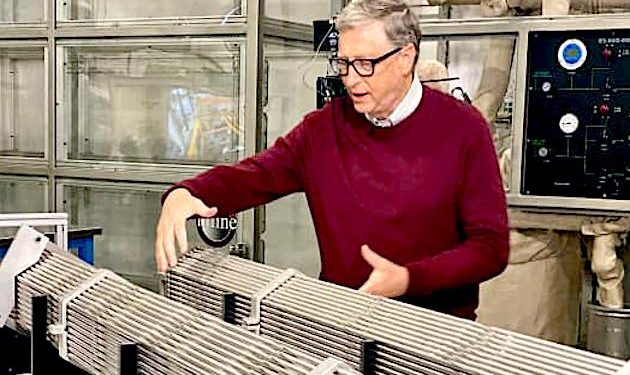- Power companies owned by Bill Gates and Warren Buffett have decided to build their first “next generation” nuclear reactor for generating carbon-free power.
- The companies will announce the exact location of the plant by the end of the year.
- The demonstration plant would take about seven years to build, according to Chris Levesque, TerraPower’s president and CEO.
CHEYENNE, Wyoming: Power companies owned by Bill Gates and Warren Buffett have decided to build their first “next generation” nuclear reactor for generating carbon-free power on the site of an old coal plant in Wyoming, the state’s governor has disclosed.
The companies – TerraPower, founded by Gates, and PacifiCorp, owned by Buffett’s Berkshire Hathaway – said they will announce the exact location of the plant, which is being built to demonstrate Natrium technology, by the end of the year, Reuters reported.
The demonstration plant would take about seven years to build, according to Chris Levesque, TerraPower’s president and CEO.
“We need this kind of clean energy on the grid in the 2030s,” he said.
Advanced nuclear reactors such as Natrium use different fuels than conventional reactors and can supplement fuel using wind and solar power, thereby helping states cut emissions.
“This is our fastest and clearest course to becoming carbon negative,” Wyoming Governor Mark Gordon said.
“Nuclear power is clearly a part of my all-of-the-above strategy for energy” in Wyoming, the leading coal-producer in the U.S., he added.
The TerraPower and PacifiCorp plant, which will feature a 345 megawatt sodium-cooled fast reactor and molten salt-based energy storage, will cost some $1 billion to build and is expected to produce 500 megawatts of power during peak demand.
Last year, the US Department of Energy extended $80 million in initial funding to TerraPower for the project and committed additional funding over the next few years.
The demonstration project could also help boost the state’s once active uranium mining industry, Wyoming Senator John Barrasso said.
However, experts have cautioned that such advanced reactors could prove more risky than traditional ones.
According to a recent report, since advanced reactors require fuel that has been enriched at a much higher rate, and such a fuel supply chain could become a target for terrorists looking to make a crude nuclear weapon.






